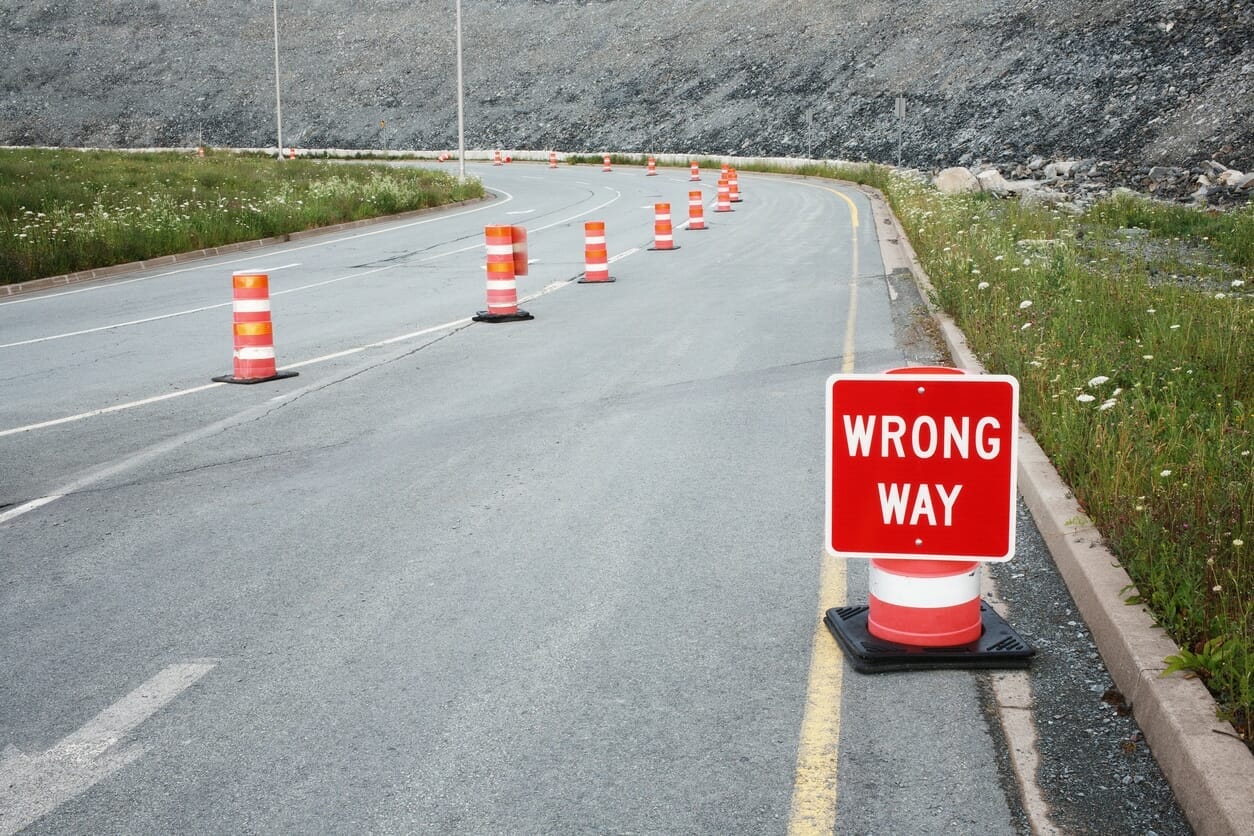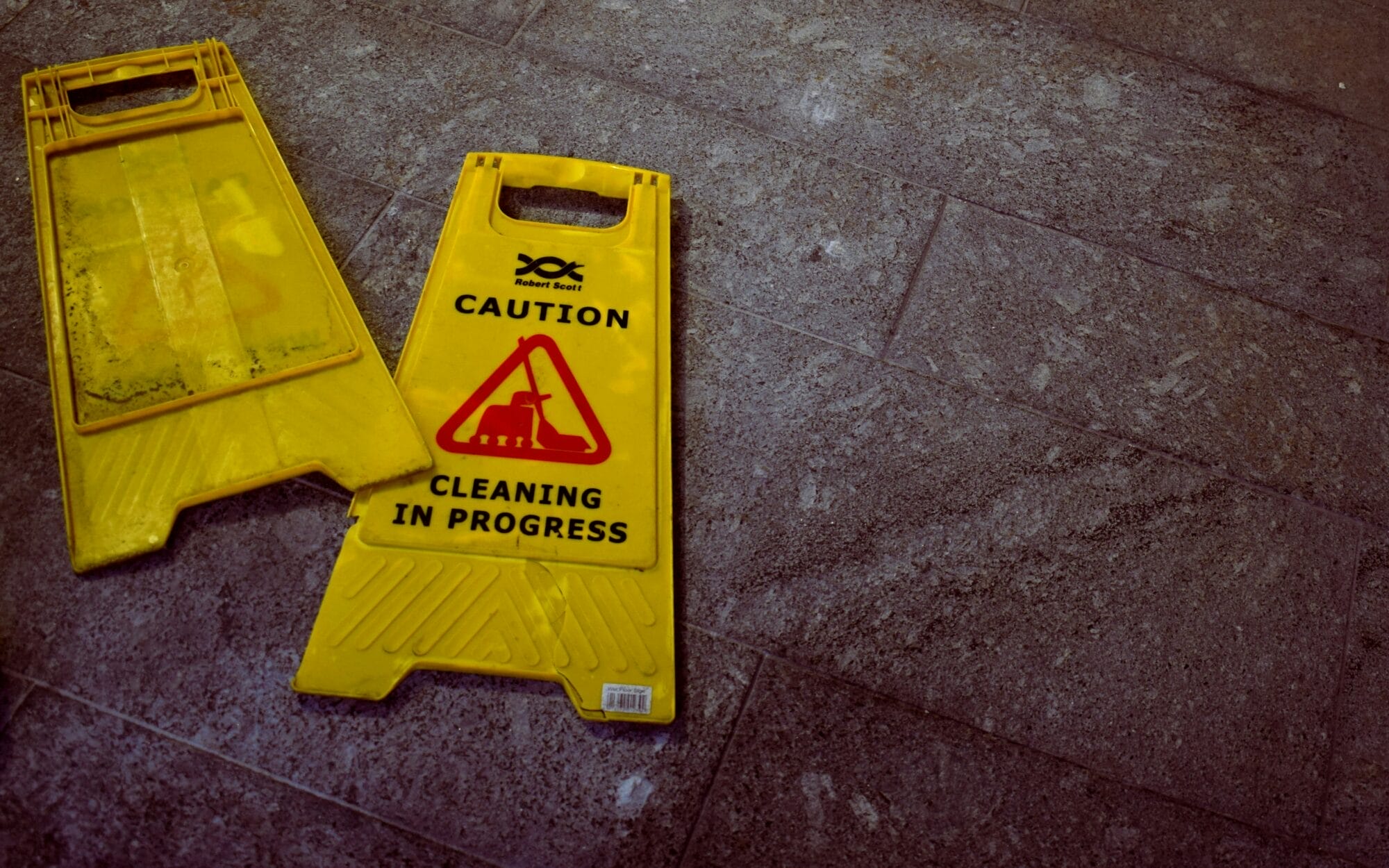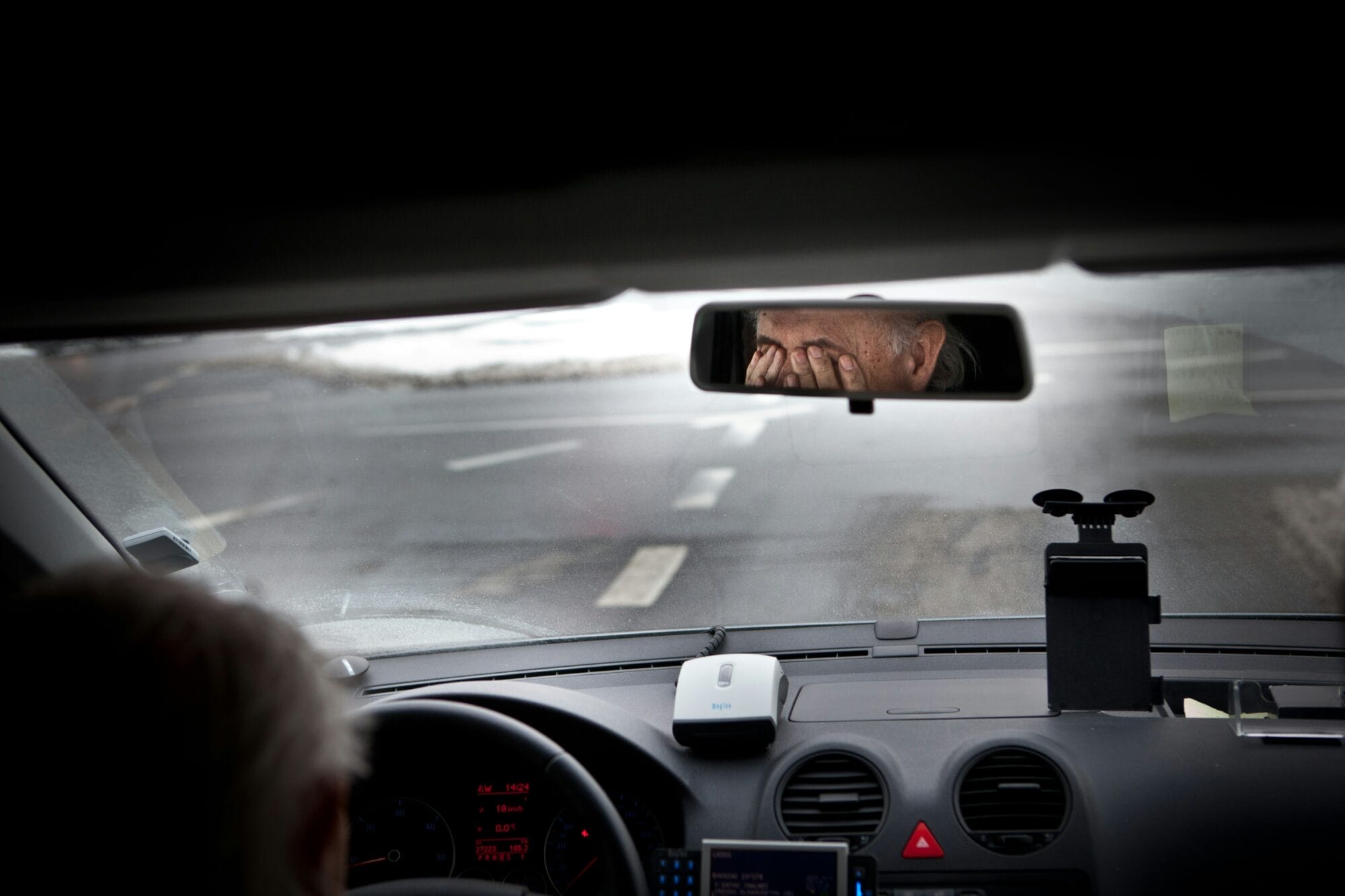The U.S Department of Transportation reports that 300 to 400 people are killed each year in wrong-way driving crashes. While these accidents may be a small percentage of overall traffic fatalities, their effects are devastating and often result in fatalities or very severe injuries. Not all accidents can be avoided, and some instances of wrong-way driving are truly an accident, but there are steps you can take to avoid Virginia wrong-way driving accidents.
Wrong-Way Driving Statistics
Wrong-way driving occurs when a driver, deliberately or inadvertently, drives against the flow of traffic. According to the National Transportation Safety Board, wrong-way collisions are infrequent, making up about 3 percent of accidents on high-speed divided highways and only 1 percent of the total number of traffic-related fatalities. However, these types of collisions are much more likely to cause fatalities and serious injuries than other types of accidents because they are often head-on collisions. In fact, one study of Virginia wrong-way collisions found that wrong-way collisions on highways were 27 times more likely to result in a fatality than other types of accidents.
Causes of Wrong-Way Driving
Virginia wrong-way driving accidents can be caused by any number of factors. However, studies by the NTSB and individual states have identified a few common causes:
Driving under the influence
Research has found that more than 60 percent of wrong-way accidents were caused by drivers under the influence of alcohol. Driving under the influence of drugs may also be a factor, but it occurs much less frequently than instances where wrong-way drivers were under the influence of alcohol.
Age
The majority of drivers in wrong-way collisions are between the ages of 20 and 50. However, after the age of 70, the number of wrong-way drivers in fatal wrong-way collisions exceeded the number of drivers heading in the proper direction. Younger drivers are much more likely to be alcohol-impaired than older drivers.
Time of day and day of the week
Almost 80 percent of wrong-way collisions occur between 6 p.m. and 6 a.m., and almost 60 percent occur on the weekend. Drivers tend to be more fatigued during these times and visibility may be limited.
Road design
Research indicates that freeway exit ramps are the main entry points for most wrong-way driving accidents. Poor signage and bad highway design may also cause drivers to enter onto incorrect highway ramps and proceed in the wrong direction.
Fatigue and distracted driving
As with any other type of accident, fatigue and distracted driving play a role in causing wrong-way accidents.
Tips for Avoiding Virginia Wrong-Way Driving Accidents
Not all accidents can be avoided, but the below tips may help to reduce your chances of being involved in a wrong-way collision.
Drive in the right lane
Seven out of nine wrong-way collisions occur in the lane closest to the median and most wrong-way drivers will drive in the left lane. Driving in the right lane may put some distance between you and the wrong-way driver.
Always look ahead
Everyone knows that you should keep your eyes on the road, but being attentive drivers requires more than just looking at the car in front of you. Look beyond the first few cars in front of you and continually scan the entire roadway. This will likely give you more time to react to any wrong-way drivers, potential accidents, or any road hazard.
Be vigilant when driving at night and on the weekend
The research indicates that approximately 70 percent of wrong-way collisions occur between 6 p.m and 6 a.m., and more collisions occur on the weekends. Remain cautious and alert when driving during these times.
Avoid distractions
Staying alert while driving is essential to avoiding a collision with a wrong-way driver or many other types of accidents. You should never text and drive, and if you need to use your cell phone make sure to use a hands-free device or stop somewhere safe to make your call. Adjusting the radio and turning around to talk with passengers in the back seat are also avoidable distractions.
Pull over to the shoulder
If you see a wrong-way driver coming toward you, make your way to the shoulder as quickly and safely as possible. Since most wrong-way drivers tend to drive in the left lane, the shoulder may be the safest place to direct your car. In addition, you will likely have only seconds to react, so it is better to swerve out of the way than apply the breaks.
Report the driver
If you see a wrong-way driver, call 911 and report it immediately.
If you are in an accident with a wrong-way driver, remember that your safety and that of your passengers should be your first concern. If you are able, call 911 or instruct a specific person to call 911.
If you can safely exit your vehicle, make sure to move as far off the road as possible. Collecting the names and contact information for any witnesses will be particularly useful not only for law enforcement but also for you in the event that you file suit against the wrong-way driver. Cooperate with law enforcement and document as much of the scene and damage to your vehicle as possible.
But, above all, tend to your immediate medical needs first.
Hire A Virginia Personal Injury Attorney for Help With Your Car Accident Claim
Wrong-way driving accidents can be caused by reckless acts or inadvertent–but disastrous–mistakes. If you or a loved one has been the victim of a Virginia wrong-way driving accident, let the Virginia Personal Injury Attorneys at Renfro & Renfro shoulder the stress of reviewing and managing your case so you can focus on restoring your health and property. Contact us today for a free consultation.






